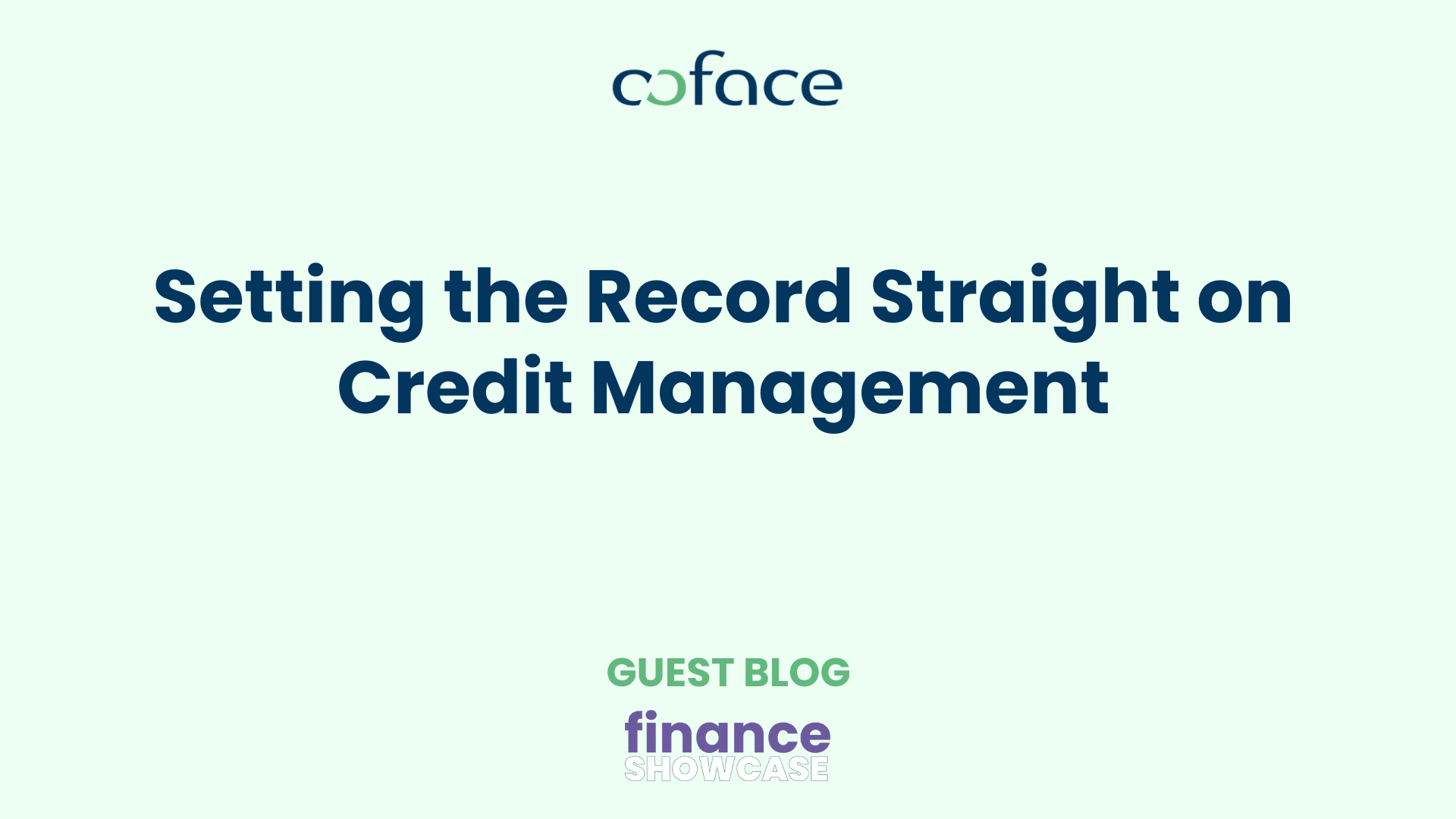Written by Coface – a new exhibitor at financeSHOWCASE events
The stereotype of a swashbuckling salesperson being held back by a cautious, desk-bound credit risk manager is one of several common misconceptions about credit management that might lead some to dismiss its value within a business.
Amid a steep rise in corporate insolvencies and the growing risk of bad debt, we think it’s high time to challenge some of these unhelpful myths and assumptions.
- Strong credit management inhibits sales
There’s little point in clinching a sale if the customer doesn’t have the means to pay, so it’s better for sales and credit management to work hand-in-hand.
Effective credit management can steer the company away from high-risk business and potentially catastrophic losses and instead help sales teams focus their efforts on financially healthy (and profitable) customers. This involves monitoring the payment behaviour of existing customers, evaluating prospective trading partners and gathering business intelligence from across the supply chain.
Equally, sales teams can assist credit managers by getting new customers vetted before trading and passing on relevant information about their accounts. A salesperson who gets out and about will often be the first to notice changes, such as a reduction in activity or the departure of senior personnel.
- A credit risk assessment should be enough to weed out risky customers
Beware of being lulled into a false sense of security if you rely on standard credit checks, references or publicly filed accounts to make credit decisions, because they are often based on historic information.
If you don’t discover that a company is in financial trouble until they are already on the verge of collapse, it will be difficult to extricate yourself from the business relationship. Even worse, you might be facing significant financial losses.
Before you can trade with confidence, you need a complete, accurate, and up-to-date picture of a company’s credit risk.
- Fraudsters only target large companies
There’s little point in wasting time chasing huge rewards if there’s little chance of success, so corporate fraudsters will generally take the path of least resistance, regardless of company size. More importantly, losses that might be absorbed by a large company could have a ruinous impact on a smaller business.
There are no official figures on the cost of fraud to businesses, but the scale is significant. According to the government’s new Fraud Strategy, fraud currently accounts for over 40% of all offences in England and Wales, and in 2020, around one in five businesses said they had been a victim of fraud in the previous three years (18%). UK Finance, which represents the banking and finance industry, reported losses of £1.2 billion to fraud in 2022, including fraud against businesses such as invoice and mandate scams and CEO fraud.
To avoid your business becoming a victim, be on your guard. Understand where your business might be at risk and put in place preventative measures. For example, find out as much as you can about prospective customers and suppliers and verify that they are who they claim to be using a reputable organisation, rather than just relying on references or searching the Companies House register. You can find more fraud prevention tips on the City of London Police website.
- We have built up reserves to cover a bad debt
Having this financial cushion in the event of customer insolvency feels reassuring, but it may not be enough. The collapse of a corporate giant can lead to the failure of many suppliers in a short period of time and cause problems across their sector. When Carillion failed in early 2018, it triggered a 20% spike in building firm insolvencies in that quarter, compared to the previous year. Could your reserves cover the loss of several customers or suppliers in such a short space of time?
The other question is whether this strategy could be holding your business back. Not only does it tie up money that could be put to better use elsewhere, such as investing in new equipment or product development, it may also make you excessively risk-averse and therefore less competitive.
- Credit insurance is too expensive and doesn’t cover what we need
Credit insurance protects your business’s bottom line from losses arising from non-payment for goods or services, as well as other trade risks such as supply chain problems, political events, and natural disasters.
There are a wide range of options to suit different budgets and requirements, including single-risk cover for important customers, export cover and the option of discretionary cover up to an agreed threshold.
Having a policy gives you the confidence to trade and get ahead by offering competitive terms.
Written by Coface – a new exhibitor at financeSHOWCASE events


